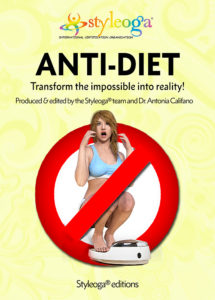NUTRITION; HOW TO SURVIVE THE SUMMER
Summer arrives every year and every year we find ourselves fighting against the heat, dehydration but also with the lack of desire to cook, to take very often care of ourselves in the right way.
IN ITALY already since 2004 the government has prepared a national plan that is put in action every summer to give guidelines to survive the heat in an adequate manner and especially to eat well even in a season such as summer, also giving 10 precious suggestions on how to nourish ourselves in a proper and correct manner. In Summer most people have more free time and food habits tend to change and unfortunately not always for the better between feasts, parties, doubled evenings out, heat, ice cream and even the tastier fruit but also more sugary.
TEN TIPS FOR A HEALTHY SUMMER
NUTRITION; HOW TO SURVIVE THE SUMMER
- Drink at least two litres (eight glasses) of water a day. In summer you lose minerals with increased sweating and breathability. For the elderly it is particularly important to drink, independently from the stimulus of thirst. Children should drink more.
- Moderate the consumption of beverages with added sugar. Limit the consumption of moderately alcoholic beverages such as wine and beer. Avoid beverages with a high alcohol content.
- Observe daily the number and the time of meals, especially breakfast, that must be privileged with respect to the other meals. Breakfast is the most important meal of the day, it comes after the longest period of fasting within the 24 hours and provides the “fuel” throughout the day. Not consuming an adequate breakfast also leads to a higher intake of calories in the following hours.
- Increase the consumption of seasonal fruit and vegetables and yoghurt. Eat fresh fruit and vegetables that are in season (400 g at least a day, W.H.O.). Prefer yogurt without added sugars, which together with the fruit, can become a delicious snack. Do not neglect the dried fruit (almonds, walnuts etc.), rich in “good” fats, minerals and fibre, but do not exaggerate, because they also bring a lot of calories.
- Prepare the dishes using creativity and fantasy, varying food also in the colours. The colour of food is given by the substances having antioxidant action (vitamins, polyphenols, etc.): the more you vary the colours the more complete is the mineral assumption.
- Moderate the consumption of elaborate dishes rich in fat. With the heat, the body consumes less energy. It is therefore advisable to moderate the caloric intake, preferring a cooking type able to maintain unchanged the intake of minerals and vitamins, also diminishing the quantity of salt to be added during the preparation.
- Dress your dishes with raw olive oil.
- Prioritise fresh food, easily digestible and rich in water.
- Avoid full meals with the starter, main and side, especially during stays in a hotel or when travelling since it is easier that both lunch and dinner are consumed in a restaurant. Opt in one of the two occasions for single balanced dishes, which can provide the nutrients of a whole meal. Some of the possible combinations are pasta with legumes and/or vegetables, meat/fish/eggs with vegetables.
- Consume little salt and prefer iodized salt. The lack of iodine is still a problem: the thyroid affects many of the functions of the organism and has need of the correct daily intake, guaranteed by the consumption of only 5 g of iodized salt per day. For the hypertensive patients it can be useful to consume iposodico or asodico salt.
- Observe the methods of food preservation. Maintain the cold chain for foods that require it (thermal bag/cooler for the pic-nic). Remember that foods which are stored for a long time in a refrigerator are likely of a worsening nutritional quality and/or contamination by microorganisms.
DOES NUTRITION INTEREST YOU?
Deepen with our book, available both in paperback and E-book version



Leave A Comment